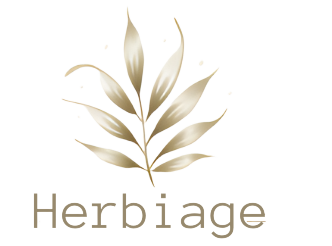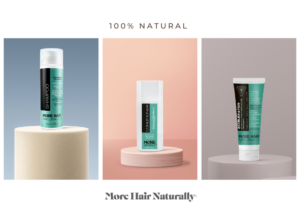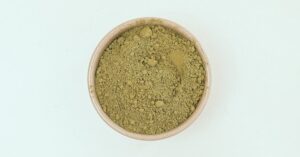Disclaimer: This post may contain affiliate links, meaning we get a small commission if you make a purchase through our links, at no cost to you. For more information, please visit our Disclosure page.
Welcome to our guide on natural DIY hair masks! If you’re looking to elevate your hair care routine and achieve luscious locks, you’ve come to the right place. Natural hair masks are a fantastic way to nourish and rejuvenate your hair, using simple yet powerful ingredients found in nature.
We’ll step into the world of natural hair masks, exploring the benefits of incorporating them into your routine and providing you with three amazing DIY recipes to get you started. From coconut oil and honey to avocado and banana, we’ll show you how to harness the power of nature to achieve healthier, more vibrant hair.
But first, let’s take a closer look at why natural hair masks are the ultimate choice for anyone seeking to pamper their locks and enhance their hair’s natural beauty.
Why Use Natural Hair Masks?
- Nourishment from Nature: Natural hair masks are formulated with ingredients sourced directly from nature, such as fruits, oils, and herbs. These ingredients are rich in vitamins, minerals, and antioxidants that nourish and strengthen the hair from the inside out. Unlike commercial hair products that may contain harsh chemicals and synthetic additives, natural hair masks provide pure, wholesome goodness for your hair and scalp.
- Gentle and Safe: One of the main advantages of natural hair masks is that they are gentle and safe for all hair types, including sensitive scalps and chemically-treated hair. Many commercial hair products contain ingredients like sulfates, parabens, and silicones that can strip the hair of its natural oils and cause damage over time. Natural hair masks, on the other hand, are free from harmful chemicals and are less likely to cause irritation or adverse reactions.
- Deep Conditioning and Hydration: Natural hair masks are highly effective at providing deep conditioning and hydration to the hair and scalp. Ingredients like coconut oil, avocado, and honey are renowned for their moisturizing properties, helping to restore moisture balance, soften dry and brittle hair, and improve overall hair texture. Regular use of natural hair masks can leave your hair feeling silky-smooth, shiny, and more manageable.
- Repair and Strengthen: Many natural ingredients used in hair masks, such as protein-rich yogurt and egg, are known for their ability to repair and strengthen damaged hair. These ingredients help to replenish lost nutrients, seal the hair cuticle, and reduce breakage and split ends. Whether your hair has been subjected to heat styling, chemical treatments, or environmental damage, natural hair masks can help restore its health and vitality.
- Promotes Scalp Health: A healthy scalp is essential for healthy hair growth, and natural hair masks can play a crucial role in promoting scalp health. Ingredients like aloe vera and tea tree oil have soothing and anti-inflammatory properties that can help alleviate scalp irritation, dandruff, and other common scalp conditions. By nourishing and balancing the scalp, natural hair masks create an optimal environment for hair growth and overall hair health.
In summary, natural hair masks offer a myriad of benefits for your hair and scalp, providing gentle yet effective nourishment, hydration, repair, and strengthening. Whether you’re dealing with dryness, damage, or simply want to maintain the health and beauty of your hair, incorporating natural hair masks into your routine is a wise choice. Now that we’ve explored the why let’s move on to the how with three amazing DIY hair mask recipes.
1. Coconut Oil and Honey Mask:
Ingredients:
2 tablespoons of coconut oil
1 tablespoon of honey
Instructions:
1. In a small bowl, mix together the coconut oil and honey until well combined.
2. Apply the mixture to clean, damp hair, focusing on the ends and any areas that are dry or damaged.
3. Gently massage the mask into your hair and scalp, ensuring thorough coverage.
4. Leave the mask on for 30 minutes to an hour, then rinse it out with lukewarm water and shampoo as usual.
Benefits:
Coconut oil deeply moisturizes and conditions the hair, while honey adds shine and helps seal in moisture. Together, they leave your hair feeling soft, silky, and nourished.
2. Avocado and Banana Mask:
Ingredients:
1 ripe avocado
1 ripe banana
Instructions:
1. Mash the avocado and banana together in a bowl until you have a smooth paste.
2. Apply the mixture to clean, damp hair, focusing on the roots and lengths.
3. Leave the mask on for 30 minutes to an hour, then rinse it out with lukewarm water and shampoo as usual.
Benefits:
Avocado is rich in vitamins and fatty acids that nourish and hydrate the hair, while banana helps strengthen and repair damaged strands. This mask is perfect for restoring moisture and vitality to dry, brittle hair.
3. Yogurt and Aloe Vera Mask:
Ingredients:
1/2 cup of plain yogurt
2 tablespoons of aloe vera gel
Instructions:
1. Mix the yogurt and aloe vera gel together in a bowl until well combined.
2. Apply the mixture to clean, damp hair, focusing on the scalp and roots.
3. Leave the mask on for 20-30 minutes, then rinse it out with lukewarm water and shampoo as usual.
Benefits:
Yogurt is rich in protein and probiotics that help strengthen and condition the hair, while aloe vera soothes the scalp and promotes healthy hair growth. This mask is ideal for maintaining scalp health and promoting shiny, lustrous hair.
These DIY natural hair masks are easy to make and highly effective at nourishing and revitalizing your hair. Whether you’re dealing with dryness, damage, or just want to give your hair a healthy boost, these masks are sure to leave your locks looking and feeling their best. Try them out and experience the power of natural ingredients for yourself!
Helpful Tips for Using Hair Masks
- Preparation and Application:
- Before applying a hair mask, it’s essential to start with clean, damp hair. Shampoo your hair as usual, then gently towel-dry it to remove excess water before applying the mask.
- Use your fingers or a wide-tooth comb to distribute the mask evenly throughout your hair, focusing on the lengths and ends. Avoid applying the mask directly to the scalp, as this can weigh down your hair and make it appear greasy.
- Time and Duration:
- Most natural hair masks require some time to work their magic, so it’s essential to leave them on for the recommended duration. Follow the instructions provided with the mask recipe, typically ranging from 20 minutes to an hour.
- While it may be tempting to leave the mask on for longer, overexposure to certain ingredients can have adverse effects on your hair. Stick to the recommended duration to avoid any potential damage.
- Heat Activation:
- For an extra boost of hydration and penetration, consider using heat to activate the ingredients in your hair mask. You can cover your hair with a shower cap or warm towel while the mask is on or use a hair dryer on a low heat setting to gently heat your hair.
- Rinsing and Washing:
- After the designated time has passed, rinse out the hair mask thoroughly with lukewarm water. Use your fingers to massage your scalp and ensure that all traces of the mask are removed.
- Follow up with a gentle shampoo to cleanse your hair and remove any remaining residue from the mask. Be sure to use a sulfate-free shampoo to avoid stripping your hair of its natural oils.
- Frequency of Use:
- While natural hair masks are generally gentle and safe for regular use, it’s essential to strike a balance and not overdo it. Aim to use a hair mask once or twice a week to avoid overloading your hair with moisture and nutrients.
- Pay attention to how your hair responds to the mask and adjust the frequency of use accordingly. If your hair starts to feel heavy or greasy, scale back on the number of times you use the mask each week.
- Customization:
- Don’t be afraid to experiment with different ingredients and combinations to find the perfect hair mask for your hair type and concerns. You can customize your hair mask by adding essential oils, herbs, or other nourishing ingredients to suit your needs.
By following these tips, you can ensure that you get the most out of your natural hair masks and achieve healthy, beautiful hair. Whether you’re looking to hydrate, repair, or rejuvenate your locks, incorporating natural hair masks into your routine is sure to leave your hair looking and feeling its best.



